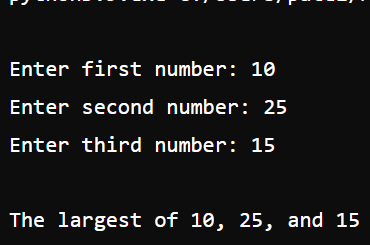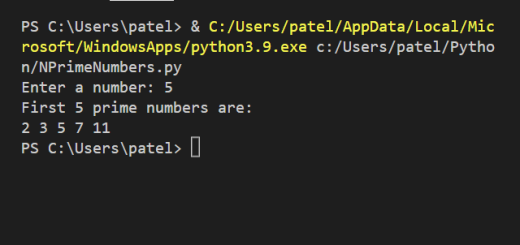Python Program for the Sum of Natural Numbers using Recursion
In this tutorial, we will discuss a Python program for the sum of natural numbers using recursion.
Before going to the program first, let us understand what is Natural Numbers.
Natural Numbers:
- Natural numbers are all positive integers from 1 to infinity.
- The sum of the first nn natural numbers is given by the formula: S=n(n+1)2S = \frac{n(n + 1)}{2}, but we will use recursion to achieve this.
Related: Python program for Simple Interest Calculation
Program code for the sum of natural numbers using recursion in Python
# Sum of Natural Numbers Using Recursion in Python
def sum_of_natural_numbers(n):
if n == 1:
return 1
else:
return n + sum_of_natural_numbers(n - 1)
number = int(input("Enter a positive integer: "))
if number < 1:
print("Please enter a positive integer.")
else:
print(f"The sum of the first {number} natural numbers is {sum_of_natural_numbers(number)}.")
Explanation
- Function Definition: The
sum_of_natural_numbersfunction takes an integernas input and returns the sum of the first nn natural numbers using recursion. - Main Program: The program prompts the user to enter a positive integer and then calculates the sum of the first nn natural numbers using the
sum_of_natural_numbersfunction and prints the result.
Output
- When you run the above program, it will prompt you to enter a positive integer.
- After entering the number, it will calculate the sum of the first nn natural numbers using recursion and print the result.
Conclusion
- In this tutorial, we learned how to find the sum of the first nn natural numbers using a recursive approach in a Python program.
- Understanding this concept is essential for solving various mathematical problems and enhancing your programming skills.




